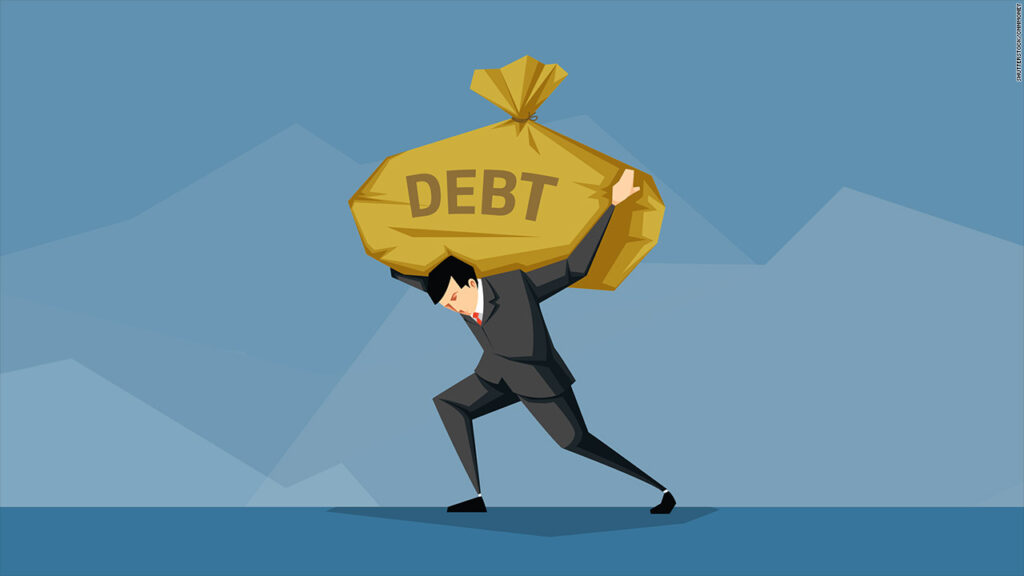
Have you ever heard the saying, “Time is money”? Well, when it comes to your finances, it’s more accurate to say, “Time plus compound interest is money!” In this article, we’ll explore the concept of compound interest in a straightforward and easy-to-understand manner, and show you how it can work wonders for your financial future.
What is Compound Interest?
Compound interest is like a snowball rolling down a hill, picking up more snow (or money) as it goes. It’s the interest earned not only on your initial investment, but also on the interest that accrues over time. This means that your money can grow at an accelerating rate. That’s why compound interest is so powerful—it compounds!
Let’s break it down with a simple example
Compound interest is a powerful force for good. It’s the reason why you should always consider your savings options carefully, and it’s the reason why you should never feel bad about putting money into your retirement account. Consider this example: let’s say you deposit $100 into an account that earns 10% per year compounded annually. After one year, you’ll have $110 in your account—$10 from the original deposit and $10 from 10% annual interest on it. But after two years, you’ll have $121—$21 from additional deposits and $11 from 10% annual interest on each of those deposits. That’s because your original deposit is earning 10% annual interest AND accruing additional deposits along the way!
Start Early, Reap the Rewards
One of the most powerful aspects of compound interest is the benefit of time. The longer your money is invested, the more time it has to grow. This is why it’s often advised to start saving and investing as early as possible. Let’s say you’re 18 years old, and you want to start investing $1,000 per month for retirement. If you invest that money in a mutual fund or a retirement account and earn an average annual return of 5%, after 20 years (when you’re 38) your investment will be worth $143,722!
That means if you started at age 18 and never changed anything about how much or how frequently you contributed over those two decades, by the time you were ready to retire at age 48, your nest egg would be worth almost $150K!
But if instead of starting at age 18, you waited until age 28 before starting your contributions—which is what many people do—then after 20 years your investment would only be worth $99,974! That’s nearly $50K less than if you had started saving earlier!
Make Consistent Contributions
Regular contributions to your investments are like feeding fuel to the compound interest fire. Even if you can only start with a small amount, the key is to be consistent. Over time, these contributions can lead to significant growth.
If you’re not sure where to get started, consider setting up an automatic transfer from your checking account into your retirement account (such as a Roth IRA) or investment account (such as a brokerage). You’ll never have to think about it again, but knowing that it’s happening will help keep the process on track and make sure you’re making progress toward your goals.
Avoiding Debt’s Dark Side

While compound interest can work wonders for investments, it can also work against you if you’re in debt. High-interest debt, like credit card balances, can compound over time and become a significant financial burden. Prioritize paying down high-interest debt to avoid its negative effects.
Compound interest is when interest is added to an account on top of the balance, thus increasing the balance and the total amount of interest paid on the account. This is how investments work: you make regular payments into an account and each payment earns a little bit of interest. As long as no withdrawals are made, this can help your investment grow much faster than if you had just kept the money in a savings account without earning any interest at all.
However, if you are in debt and making monthly payments towards that debt—for example, if you have a credit card balance or student loans—then compound interest works against you instead of with you. In these cases, any money that goes towards paying down the principal balance on your debt is actually being used to pay more interest than would have been paid if only the original balance had been paid off over time rather than using extra funds for principal reduction (and thus increasing your monthly payments).
In conclusion, compound interest is a powerful tool that can help you build wealth over time. Start early, contribute consistently, and let time work its magic. Whether you’re saving for retirement, a home, or other financial goals, harnessing the power of compound interest can make a world of difference in achieving your dreams. Remember, it’s not just about how much you invest, but how long you let it grow!
RUCHI RATHOR Founder & CEO
Payomatix Technologies Pvt. Ltd.
FOUNDER AND INVESTOR | PAYMENTS PROCESSING EXPERT | MERCHANT ACCOUNT SOLUTIONS | WHITE LABELLED PAYMENT GATEWAY | Dreamer, Creator, Achiever, Constantly Evolving
Website Ruchi Rathor: https://ruchirathor.com
Website Healing Heart https://thehealingheart.me/
Instagram https://www.instagram.com/ruchirathor/
LinkedIn https://www.linkedin.com/in/ruchirathor12/
Facebook https://www.facebook.com/ruchi.rathor.magnificient
Tumblr https://www.tumblr.com/blog/ruchirathor-thehealingheart
Medium https://medium.com/@ruchirathor_23436








